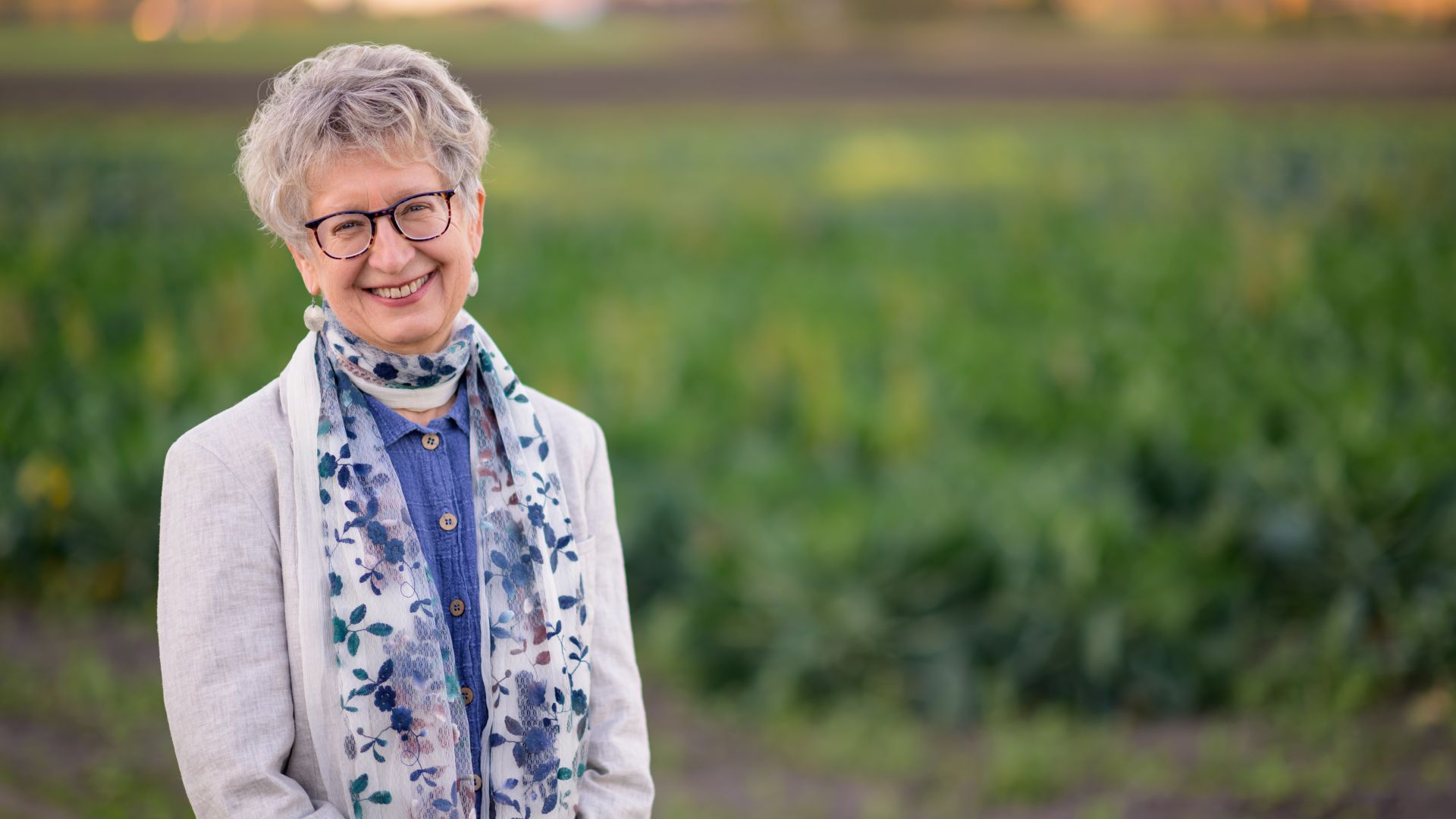With the future in mind
Keri Sweetman - 1 December 2023

Beverly Leipert, ’02 PhD (Photo by Dean Kalyan)
Dr. Beverly Leipert grew up on a mixed grain and cattle farm near Kindersley, Sask., and later worked for 10 years as a public health nurse in rural Saskatchewan. She saw first-hand the health issues, isolation and stress experienced by many women living in rural and remote areas.
While life in rural and northern communities has many positive aspects, it can be a challenging existence, especially for women, she says. As a rural public health nurse, Leipert could see the need for change. It sparked her return to university to study rural women’s health, an area of research that had been largely ignored. She obtained her master’s degree in nursing from the University of British Columbia in 1992.
Wanting to dig deeper, she decided to pursue her PhD at the U of A, knowing it had a strong reputation for nursing research. Her dissertation focused on the question of how women in remote northern communities in B.C. maintained their health. Her work revealed women used a variety of coping strategies of resilience to stay healthy, such as maintaining a positive attitude, developing fortitude and hardiness, using humour, making the best of rural contexts, being political, and giving and receiving social support.
During her doctoral studies, Leipert won the prestigious Izaak Walton Killam Memorial Scholarship in 1998. Winning the award and being supported by “powerhouse” researchers in the U of A’s Faculty of Nursing changed her life, she says.
Now a professor emerita at Western, she wants to ensure similar opportunities for other students and notes that according to the Canadian Association of Schools of Nursing, there is an acute need for more doctoral nurses.
So she has made a planned gift to the U of A. The Dr. Beverly D. Leipert and Dr. Russell W. Cornett Graduate Scholarship in Rural Women’s Health and Rural Nursing in Canada commemorates her passion for that field of nursing as well as the memory of her late husband, who earned a law degree and a PhD in philosophy.
"We both really valued university education,” says Leipert. “Having external financial support helped immensely in us achieving our educational and life dreams."
Among Leipert’s career highlights is being appointed the University of Western Ontario’s first Research Chair in Rural Women’s Health, the first research chair in the world to focus on rural women’s health. She was also lead editor of the first book in Canada to focus on rural women’s health research, Rural Women’s Health. Her national and international research has covered a wide range of topics, including the mental health of rural senior women, the practices of rural public health nurses, rural women and violence, and the importance of small-town resources such as curling rinks to the well-being of rural women.
Research of this kind is vital to continue to help improve the health and lives of women, and doctorally prepared nurses can help lead the way, Leipert says.
“We are seeing many more stresses in agriculture and other resource based industries, such as increased extreme fires and droughts. So rural communities are really under stress and strain, more than they ever have been except maybe during the Depression. It’s significant and it’s going to last for a while.”